Restoring the Soul: The Path of True Discipleship *Part 1
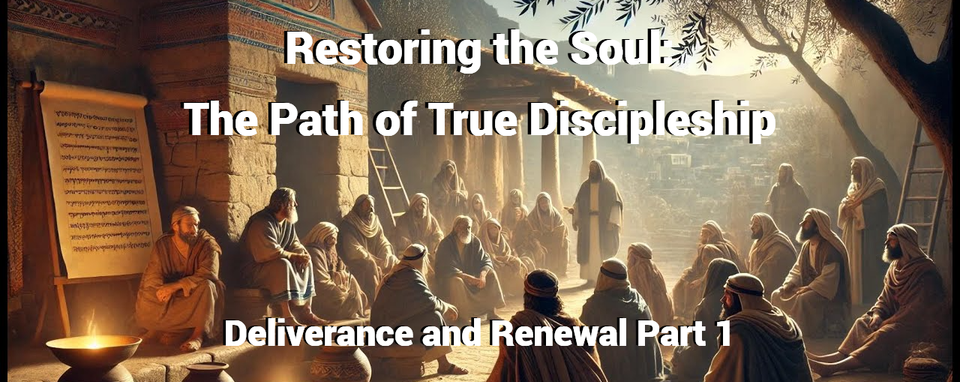
Deliverance and Renewal
Introduction: The Renewed Ruach and the Restoring of the Soul
Once a believer is born again (nolad min-haRuach), the human ruach is renewed and united with the Ruach HaKodesh of Y’hovah. Yet the nefesh—the soul, seat of the emotions, intellect, and will—remains conditioned by life’s experiences.
The disciple’s journey begins here: to allow the nefesh to be purified, healed, and aligned with the renewed ruach. We advance in spiritual life only when we come to know ourselves as we truly are before Y’hovah—honestly, without excuse. What we have done to others, what others have done to us, and how we’ve responded—all must be viewed through a Scriptural lens of repentance and reconciliation.
Deliverance: A New Creation, Not an Improved Old One
Deliverance does not mean reforming the “old man.” Sha’ul reminds us:
“Therefore, if anyone is united with the Messiah, he is a new creation — the old has passed; look, what has come is fresh and new!”
(2 Corinthians [Qorintiyim Bet] 5:17, CJB)
We cannot go back and redo the past, but as new creations—citizens of the Kingdom of Heaven—we now see life from the heavenly realm downward. Our primary concern becomes our relationship with Avinu Elohei, Y’hovah the Father. Nothing else should rival this focus.
As the Father loves the Son, so the Son loves the Father. Through Y’hoshua, we are adopted as sons and daughters; therefore, we are to love the Father as Y’hoshua does—through obedience and intimacy.
Y’hoshua said:
“If you keep My commands, you will stay in My love — just as I have kept My Father’s commands and stay in His love.”
(Yochanan [John] 15:10, CJB)
This love is not mere emotion but active participation in divine relationship. Our obedience becomes the vessel of deliverance and healing.
Healing the Soul Through Love and Obedience
The answer to healing the nefesh lies here: loving Y’hovah by obeying His commands.
“Whoever has My commands and keeps them is the one who loves Me. The one who loves Me will be loved by My Father, and I will love him and reveal Myself to him.”
(Yochanan [John] 14:21, CJB)
All unresolved wounds of the past are to be addressed now—in the present—through repentance and reconciliation. The talmid learns to release offenses, forgive those who wronged him, and surrender his reactions to the Spirit of Truth.
Deliverance, then, is not an emotional experience but a decision of the will—to let Y’hovah rule every part of life. The disciple no longer reacts according to flesh but responds from the ruach, learning to walk in the Spirit moment by moment.
Loving Y’hovah by Obeying His Commands
The Scriptures teach that our true struggle is not with Satan, people, or circumstances—it is with our relationship to Y’hovah.
“The person who sins is the one that will die. The son is not to bear the guilt of the father, nor the father bear the guilt of the son.”
(Yeḥezqel [Ezekiel] 18:20, TS2009)
Each of us is responsible before Y’hovah for how we respond. Blame-shifting and resentment keep the nefesh enslaved. True discipleship means holding ourselves accountable before His Word.
“We know that all things work together for the good of those who love Elohim, who are called according to His purpose.”
(Romans [Romiyim] 8:28, TS2009)
The trials we face are not punishments but instruments through which Y’hovah conforms us to His Son.
Judging Self: The Beginning of Transformation
Y’hoshua warned:
“First, take the log out of your own eye; then you will see clearly so that you can remove the splinter from your brother’s eye.”
(Mattityahu [Matthew] 7:5, CJB)
Self-judgment, not self-condemnation, is the starting point of renewal. The talmid must develop a sensitivity to sin—avoiding blame, excuses, and retaliation. How we respond to the irritations and offenses of life reveals the condition of our ruach.
“Strip yourselves of your former nature… and be constantly renewed in the spirit of your mind.”
(Ephesians [Eph’siyim] 4:22–24, CJB)
Through the grace of Y’hovah, we learn to respond to offenses with humility and love, seeking restoration rather than revenge.
Forgiving and Reconciling
Bitterness poisons the soul and cripples the ruach. The wounded talmid must learn to forgive, releasing judgment into Y’hovah’s hands.
“For if you forgive others their offenses, your heavenly Father will also forgive you; but if you do not forgive others their offenses, your heavenly Father will not forgive yours.”
(Mattityahu [Matthew] 6:14–15, CJB)
Forgiveness is not an emotion; it is an act of obedience. It is how we demonstrate that Y’hoshua lives within us.
Daily Devotions and Meditation
Deliverance continues through daily communion with Y’hovah. We cannot live in the Spirit without the daily infusion of His Word.
“How blessed are those who reject the advice of the wicked... their delight is in Y’hovah’s Torah; on His Torah they meditate day and night.”
(Tehillim [Psalms] 1:1–2, CJB)
As we meditate on the Davar Elohim, our intellect, emotions, and will are purified and refashioned to align with His. By His grace, we cultivate a keen awareness of His Presence—moment by moment—transforming even memories and emotions into tools for spiritual maturity.
Objective: Living From Heaven to Earth
The talmid of Y’hoshua learns to deal with life’s issues from the heavenly perspective. Offenses and irritations become opportunities for growth. The self is dethroned; Y’hovah is enthroned.
This is the beginning of the drama of transformation:
“Whoever wants to come after Me must say ‘No’ to himself, take up his stake every day and keep following Me.”
(Luke [Luqas] 9:23, CJB)
Deliverance and renewal are not events—they are a lifestyle of surrender, love, and obedience that prepares the soul for sanctification.
By Rabbi Francisco Arbas
📧 franciscoarbas.yisrael@gmail.com
Following His ‘WAY’ — Netzari Mashiach Judaism
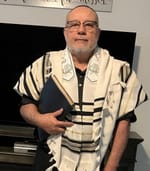
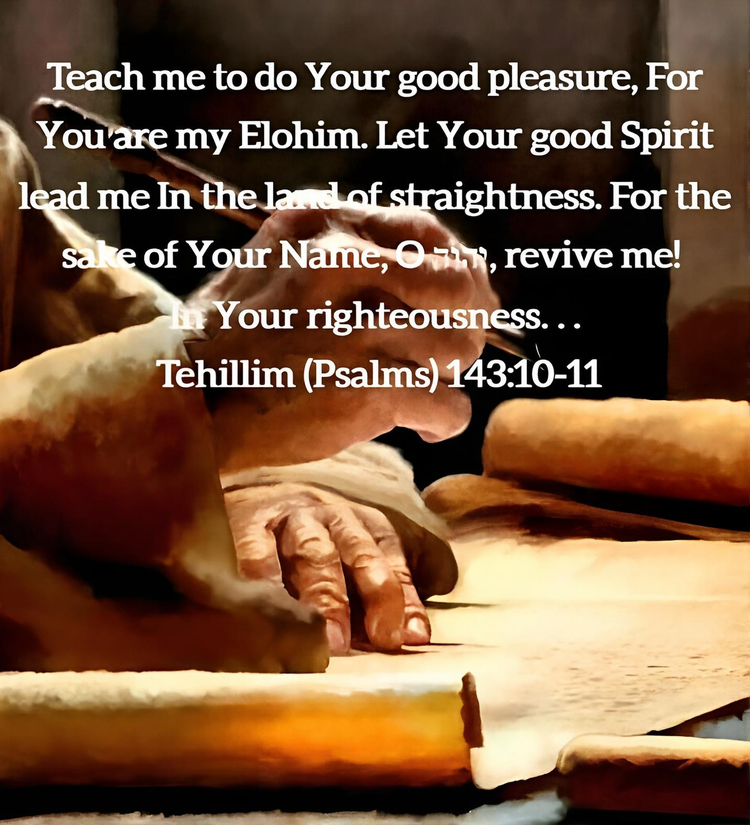
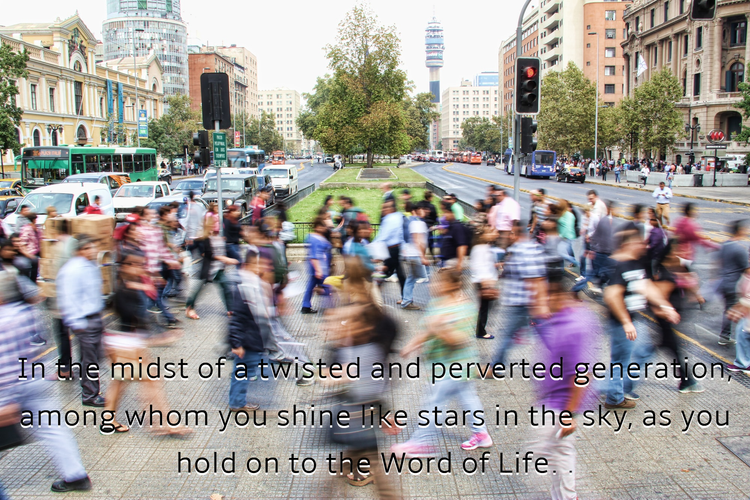
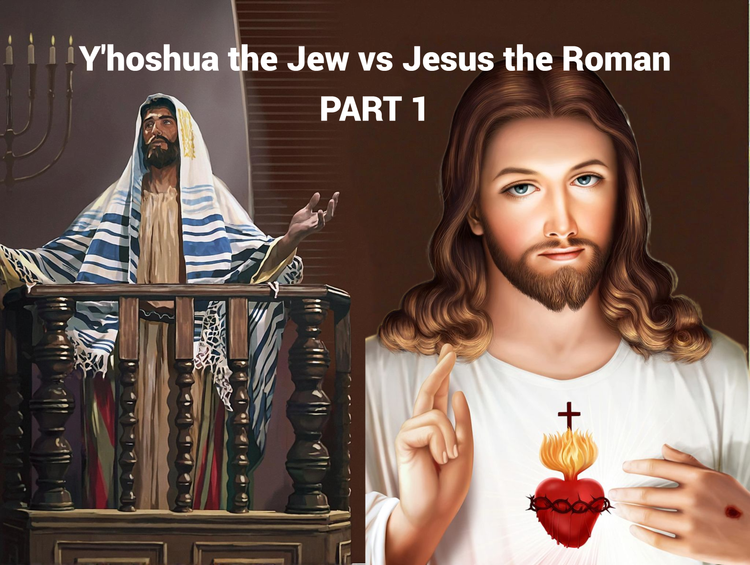
Comments ()